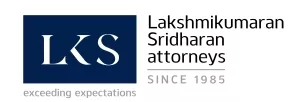The Madras High Court has held that the Registrar of the Trademarks does not have the authority to impose restriction on the choice of the colours.
Observing that what is not restricted under the Act cannot be restricted by the authority functioning under it, the High Court held that an applicant has the right to choose the colours of its choice, as the Trade Marks Act, 1999 does not impose any restriction in the freedom of the owner of a mark to choose his/her/its favoured colours.
The Registry had earlier rejected the registration of the mark with a plus sign having colours of our national flag.
The Court in this regard noted that saffron, white and green are merely colours, and they existed even before they were adopted in our national flag.
The Court also noted that if the applicant applies for the mark without limitation on the colour scheme as provided under Section 10(2), then post its registration the owner of the mark has the freedom to choose the colour scheme of its choice later, which may include the colours of our national flag.
Directing the Registrar to register the mark, the Court in Swasth Digital Health Foundation v. Trademarks Registry also raised a question that even if the mark is considered as resembling the national flag, does it anywhere seen denigrating its honour.
The content of this article is intended to provide a general guide to the subject matter. Specialist advice should be sought about your specific circumstances.


